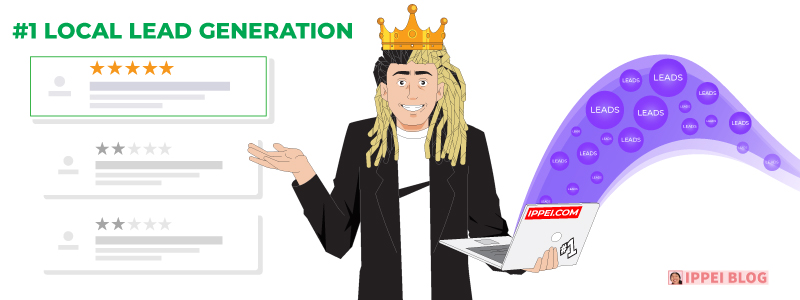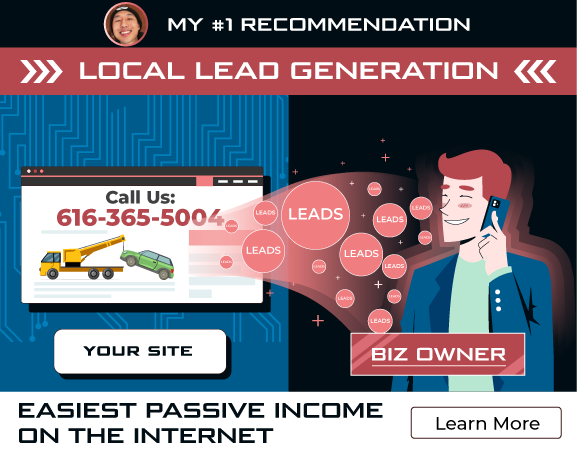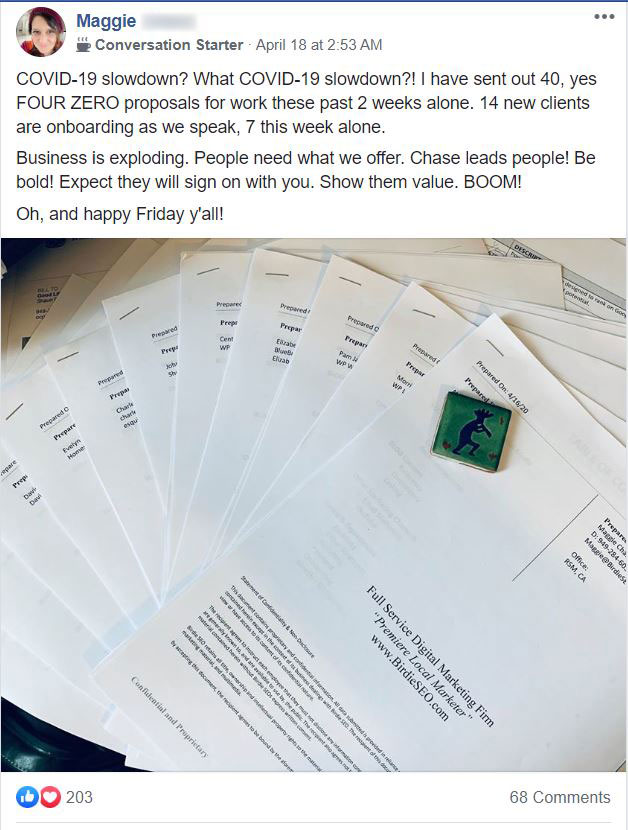
Remote closing is legit. ZipRecruiter reports that "a typical salary for a remote closer is $124,944 a year". Further data reveals that "remote closers earn over $60 per hour or a monthly income of $10 412". In contrast, a closer makes $20,000-$40,000 yearly. Zippia states that "a closer in the USA earns an hourly salary of $9-$19". A remote closer is paid a commission based on a percentage or flat fee for every sale they land.
But instead of meeting with prospects face to face, they use virtual technology like Zoom or Skype to connect with a potential client and close sales. According to Cole Gordon, the creator of Remote Closing Academy and Closers io, to make money with the remote closing business model, you need the right skills like phone sales skills, critical thinking, and the ability to overcome objections and thrive under high-pressure situations.
In 2024, a business owner faces the challenges of ever-growing global and digital channels like time zones, social media, podcasts, and search engines. Hiring a remote closer means a company is represented without being in front of an actual buyer. Remote closing offers geographical flexibility, advanced efficiency, and consistent closing strategies. Forbes says that by 2025, "36 million Americans will work remotely, which is an increase of 417% from the pre-pandemic level".
In this article, we discuss if the business model is legit, how hard it is, and how to make money online as a remote closer. Then, learn 5 reasons why this business model works and how to close more deals with potential clients to earn an income online. We'll share the strategies used by industry experts like Luke Alexander, a teenager who went from rags to riches with the business model, and how they make money with remote closing in 2024.
5 Undeniable Reasons this Business Model Works
Here are 5 reasons this business model works:
Is Remote Closing Legit?
Yes, remote closing is legit. OptinMonster suggests that "sales reps that leverage social selling are 51% more liable to hit sales quotas". Brands like Liberty National, Premier Nissan Subaru, and American Income Life list job postings for remote closers on platforms like ZipRecruiter, FlexJobs, and LinkedIn and pay a yearly salary between $35,000-$180,000. Remote closing isn't a temporary trend. Statista reports that "there are 4.8 billion people on the Internet". In 2024, remote closing is a way to expand your reach and connect with buyers from around the world.
What Is Remote Closing?
Remote closing refers to landing deals or sales using technological communication such as calls via Zoom and Skype, Facetime, emails, or SMS. Instead of being face-to-face with a potential customer, a remote closer can connect with a possible buyer and discuss the benefits of their product or service virtually.
Remote closing is an inbound sales tactic. SPOTIO says that "46% of marketers state that inbound sales get a higher ROI compared to outbound sales tactics". However, this approach demands strategic execution, high phone sales skills, and advanced communication ability. As a result, remote closers need to know how to overcome objections and use persuasive language that gets people to buy. Then, they can close sales and make money with the business model.
What Are The Pros & Cons Of Remote Closing?
Pros Of Remote Closing
A pro of remote closing is that you can work anywhere from your laptop.
Another pro of remote closing is that you're growing a skill set you can use for the rest of your life.
The biggest pro of remote closing is that you have minimal to zero overhead costs, unlike other business models such as dropshipping or ecommerce.
Cons Of Remote Closing
A con of remote closing is that getting good at sales and making money with the business model takes hard work, time, and effort.
Another con of remote closing is that the best positions (the top-paying options) have a higher barrier to entry.
The biggest con of remote closing is that it takes discipline and isn't a passive income.
5 Secrets For Overcoming Remote Closing Objections
1. Highlight The Value Of Your Remote Closing Offer
To overcome objections as a remote closer, highlight the value of your product or service. HubSpot suggests that "over 50% of buyers want to know how a product works on the first call". The secret is to lead with your value proposition. Research by DecisionLink states that "92% of people want to hear your value proposition at the start of the sales cycle".
Think about every step of the buyer's journey. What objections might they have? What problem do they need to solve? Next, eliminate their fears by educating them about your product or service. Then, have a list of benefits and showcase its features to demonstrate how it can improve their life and why they need to buy it now.
2. Validate The Prospect's Concerns About The Remote Closing Offer
Another way to overcome objections is to validate the prospect's concerns. Be an active listener and acknowledge their issues. Data from Gong says that the "top sales reps have a talk-to-listen ratio of 46%". Give potential customers a choice or present an alternate solution.
Whatever thing they say they're struggling with, take it away. For example, if a business owner tells you they don't have time, ask a hypothetical question like, If you had the time, would you do it? Then, find a way to solve that problem. The idea is to close the isolated variable. As a result, you can overcome each objection until you land the sale.
3. Become A Remote Closer Storyteller
Overcome objections by becoming a storyteller. Remote closers who personalize their pitch or can get (and keep) a potential buyer's attention will close more deals. Next, address pattern interrupt on cold calls for high ticket sales. Acknowledge and move forward as a strategy for closing deals.
People instinctively say they don't have time or aren't interested. But this is a natural reactionary response. Salesforce suggests that "92% of consumer exchanges occur via the telephone". Instead, when you call a prospect, introduce yourself. Then, ask their permission to tell them why you called. The idea is to give up control. As a result, you will gain control, get their attention, and be in a position to close the deal.
4. Reframe Your Remote Closing Offer
To overcome objections in remote closing, reframe your offer. High ticket closing isn't about the words; it's about the delivery. Data reports that "using vocabulary like 'we' instead of 'I' can boost closing rates by 35%". Be ready to ask the same questions in other ways to get a positive response. And don't be afraid to curse.
Research supports that "when the buyer and sales rep swear during a call, there is an 8% increase in closing compared to a sales call where no one curses". Use persuasive language, and practice your pitch and tonality to fine-tune your sales experience.
5. Leverage Social Selling For Your Remote Closing Offer
A way to overcome objections as a remote seller is to use social selling. Social selling uses the brand's social media channels to engage with potential customers. The idea is to share social proof like reviews and testimonials.
Studies say "social selling can boost high ticket closing win rates by 5%". Further data suggests that "using social selling can increase the size of the deal by 35%." This remote closing strategy can build awareness and develop trust with a possible buyer, connect with higher-quality prospects, and close more sales.
How Do You Get Into Remote Closing?
To get into remote closing,
- Learn the right skills like virtual communication, persuasive language, and adaptability.
- Focus on one niche and one buyer persona.
- Gain experience and get really good at getting contact information and closing deals.
To get into remote closing, you need to understand how to develop a relationship with a potential buyer virtually.
Data suggests that "it can take 2-3 years to become a remote setter". There is a lot of content on the Internet encouraging people to start as a setter to gain experience. But a setter is an entirely different job and doesn't pay as well. In fact, Talent.com states that remote setters earn an average of $39,000 a year".
A remote setter earns commissions of about 4%, while a closer earns 10-15%. And because remote closing is an easy skill set to learn, it's super competitive. On the other hand, a remote closer is an elevated skill set, but it's still not hard to learn if you're good at sales or invest in a training program like Remote Closing Academy.
The secret is to learn as much as you can about the industry. Pick a niche you want to target and study its customers. What are people looking for online? What questions are they asking? Is this product the best solution? Does it fill a gap in the market or meet a need? Then, learn how to build trust with your buyer. Research suggests that "only 6.7% of people think information shared by sales reps is trustworthy".
Is It Hard To Be A Remote Closer?
It can be hard to be a remote closer if you lack sales skills or don't understand the closing process. Being a remote closer is not an easy way to make money online. The business model takes training and talent to understand what drives people to purchase and how to leverage consumer psychology to land sales.
Remote closers get paid for closed deals. You need to know how to influence a client during sales calls. Next, master the best techniques to get people to share personal information on a phone call that can help you sway their decision to buy. Then, know as much as you can about your buyer, like, What are their pain points? What problems do they have that your product or service will solve?
To be a remote closer, you need a specific skill set that includes things like:
Consider investing in a training course like Mike Vestil's 7-Day Remote Closer Course to elevate your abilities. Or watch industry legends like Tony Robbins or Dean Graziosi on YouTube.
Study their cutting-edge marketing and sales strategies to close deals. Next, practice mock sales calls and work on your pitch. Then, learn every nuance of your product or service. The key is to present yourself as confident and ready to overcome objections.
3 Remote Closing Experts Share Their Strategies On How To Land Sales In 2024

Cole Gordon is a well-reputed authority on high ticket products. A leader in the industry since 2015, he knows how to make money with high-ticket closing. Cole shares valuable information and strategies on his social media platforms and courses, like how to build the cost so that the cost of not taking action is exponentially greater than not taking action.
Gordon also suggests focusing on emotion to produce leverage and create internal pressure. The key is to ask the right questions. Remove their pre-perceived notions. Then, get them to view your way (product or service) as the most valuable option. Cole has several coaching programs like Closers io and Remote Closing Academy.

Aaron Martinez is Cole Gordon's right-hand man. Aaron started working with Remote Closing Academy in 2020 and has amassed a net income of around $800,000-$3 million. Martinez shares a few industry hacks to make more money with remote closing, like working smarter, not harder. For people looking to enter the field, he suggests being open and honest about not having a ton of experience. Be willing to take less cash upfront.
Then, showcase your value and what you can offer the brand. Prove your worth, and you can earn a steady income. His biggest piece of advice is that you don't need to get better at sales. Instead, you just need to find a better opportunity.

Luke began his remote closer career in 2019. But he started making big money in 2020 when he focused solely on high-ticket clients. Luke shares his strategies on how to avoid common mistakes. Instead, follow these 3 tips and go straight to the top, where you'll make really good money.
- Find an offer with a base pay. If you're strictly commission, you won't make much money.
- Work for someone who has a ton of engagement on social media. Watch out for accounts with thousands of followers but very few likes or comments. These are fake accounts that don't have actual people. As a result, you don't have leads to follow up with to make sales calls.
- Know the brand's lead flow/income. Ask the right questions like, How many closers do you already have on your offer? What is the highest income they earn? Where are your leads coming in from?
- Track your deals to ensure you get paid for the sales you close.
Believe in the product. Then you help people and can feel good about what you're doing.
Can You Make Money Online With Remote Closing?
Yes, you can make money online with remote closing. According to stats from ZipRecruiter, dated November 2023, the "average annual salary for remote closers is $124,944". Further data from Salary.com suggests that "the base salary for remote closing is between $64,600-$111,934". Most remote closers are paid on commission (around 10%) and earn between $500-$3,000/sale.
But how much money you make depends on the offer and how many sales you close. So, to make more money, focus on selling high-ticket products and increasing closing sales. Next, cultivate success-driven relationships with your sales team and setters. If you lack the skills or want to level up your talent, consider taking an online course to learn cutting-edge tips like what language to use, how to frame your questions, and the right questions to ask to get people to buy.
A remote closer can earn a semi-passive income if they use strategies like:
Data reports that "remote closing is a $3.2 billion industry," and the model will only continue to grow. But if you get in now, you're one step ahead of market saturation and can make money as a remote closer in 2024.
How Does Local Lead Generation Differ From Remote Closing?
Remote closing is legit. In 2024, it's a chance to make money on the Internet. But it's not a way to earn fast cash or a way to generate passive income. Remote closers get paid on commission and only make an income when they land a sale. So, unless you leverage other marketing tactics like affiliate marketing, there's no opportunity to gain recurring income.
As a remote closer, you need to use the right language and the words to tap into buyer psychology to elicit an emotional response. Remote closing is all about your ability to influence a person's buying decisions. You promote and sell other business owners' products or services. However, you don't own any tangible assets.

With the local lead generation business model, you build and rank websites. The idea is to get your lead gen sites to the top of the search engines. At the top, they're in front of people searching for your service. Your sites produce leads you can sell to a small business owner for a profit of 85%-90%. Each site takes 10-15 hours to build and around $500 to rank. But the website, the tracking number, and the leads belong to you.
Now, you own valuable digital real estate. Once you learn the process, it's easy to scale. Each local lead generation site can make you $500-$2,000+/month. I have grown my lead generation business to $52,000/year, and it's all passive income. If you want to learn more about how I achieved financial freedom or want to join the 7,000+ members making money online, check out our local lead generation coaching program.



